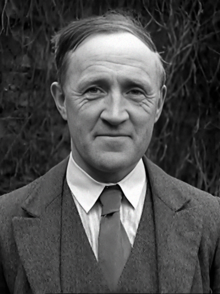Gerald Boland | |
|---|---|
 Boland in 1933 | |
| Minister for Justice | |
| In office 13 June 1951 – 2 June 1954 | |
| Taoiseach | Éamon de Valera |
| Preceded by | Daniel Morrissey |
| Succeeded by | James Everett |
| In office 8 September 1939 – 18 February 1948 | |
| Taoiseach | Éamon de Valera |
| Preceded by | P. J. Ruttledge |
| Succeeded by | Seán Mac Eoin |
| Minister for Lands | |
| In office 11 November 1936 – 8 September 1939 | |
| Taoiseach | Éamon de Valera |
| Preceded by | Frank Aiken |
| Succeeded by | Thomas Derrig |
| Minister for Posts and Telegraphs | |
| In office 8 February 1933 – 11 November 1936 | |
| President | Éamon de Valera |
| Preceded by | Joseph Connolly |
| Succeeded by | Oscar Traynor |
| Parliamentary Secretary | |
| 1932–1933 | Government Chief Whip |
| Senator | |
| In office 23 June 1965 – 5 November 1969 | |
| Constituency | Nominated by the Taoiseach |
| In office 14 December 1961 – 23 June 1965 | |
| Constituency | Industrial and Commercial Panel |
| Teachta Dála | |
| In office August 1923 – October 1961 | |
| Constituency | Roscommon |
| Personal details | |
| Born | 25 May 1885 Manchester, England |
| Died | 5 January 1973 (aged 87) Dublin, Ireland |
| Resting place | Glasnevin Cemetery, Dublin |
| Nationality | Irish |
| Political party | Fianna Fáil |
| Spouse |
Annie Keating
(m. 1920; died 1970) |
| Children | 7, including Kevin and Harry |
| Parent |
|
| Relatives | Harry Boland (brother) |
| Education | O'Brien Institute |
| Military service | |
| Allegiance | |
| Years of service | 1913–1922 |
| Battles/wars | |
Gerald Boland (25 May 1885 – 5 January 1973)[1] was an Irish Fianna Fáil politician who served as Minister for Justice from 1939 to 1948 and 1951 to 1954, Minister for Lands from 1936 to 1939, Minister for Posts and Telegraphs from 1933 to 1936 and Government Chief Whip from 1932 to 1933. He served as a Senator from 1961 to 1969 and a Teachta Dála (TD) for the Roscommon constituency from 1923 to 1961.[2]
Boland was active during the Irish revolutionary period, fighting in both the Irish War of Independence and the Irish Civil War, the latter of which saw the death of his brother Harry Boland. Following the wars, Boland was amongst those who lead Republicans out of Sinn Féin and into Fianna Fáil following a split over abstentionism. When Fianna Fáil came to power in 1932, Boland became a perennial member of the cabinet, most notably as Ireland's longest-serving Minister for Justice. Despite being socially liberal in his own views and a committed Irish republican, as Minister for Justice he was frequently asked by the government to enforce hardline policies against Irish citizens in order to prevent the Irish Republican Army from drawing the Irish state into World War II.[3]
- ^ "Residents of a house 26.2 in Lennox St. (Fitzwilliam, Dublin)". The National Archives of Ireland 1911 Census. Archived from the original on 17 February 2013. Retrieved 19 February 2012.
- ^ "Gerald Boland". Oireachtas Members Database. Retrieved 26 February 2012.
- ^ White, Lawrence William. "Boland, Gerald". Dictionary of Irish Biography. Retrieved 9 January 2021.
© MMXXIII Rich X Search. We shall prevail. All rights reserved. Rich X Search
